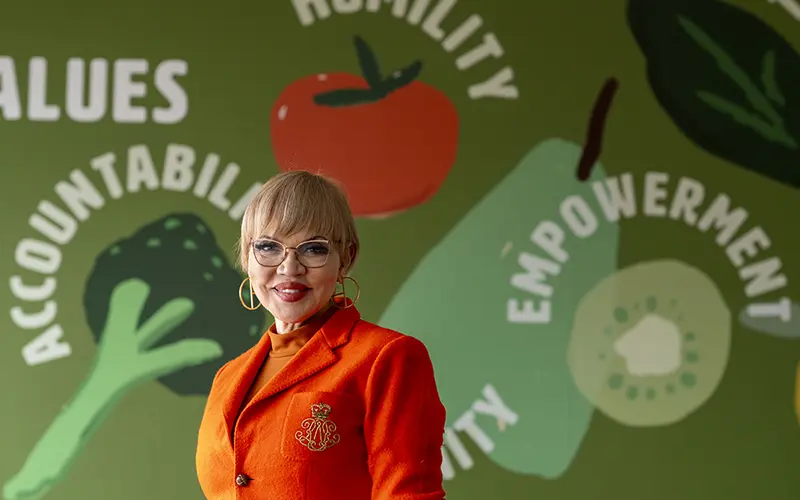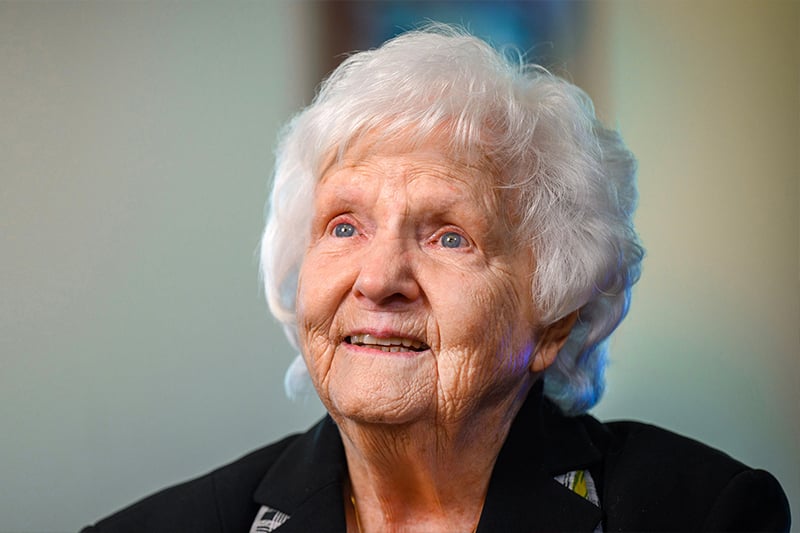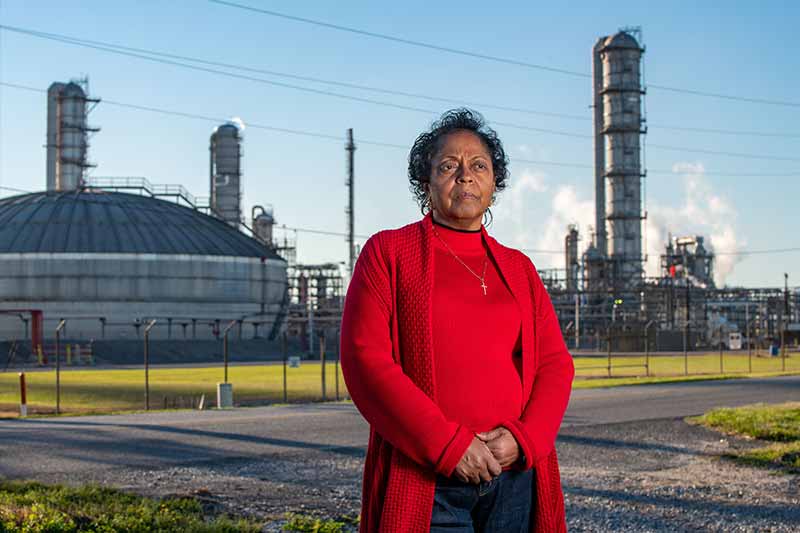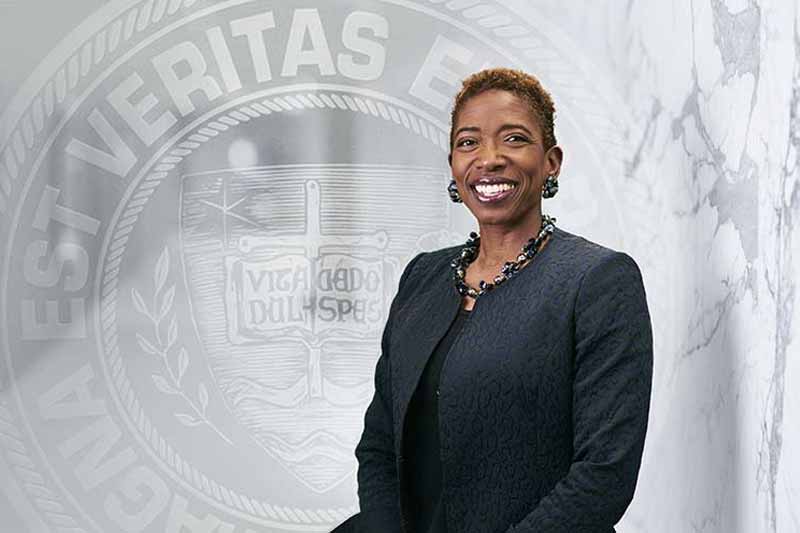Claire Babineaux-Fontenot often says that one of her greatest gifts came in “an ugly package.”
In 2015, she was diagnosed with cancer. And as she was sitting in the doctor’s office, letting those words wash over her, she came to a realization.
She’d been living as though she had all the time in the world and, in that moment, she was forced to acknowledge that none of us does.
“I asked myself, ‘What if the best thing I could do in my career was the best thing I could conceivably do in my current job. Would that be OK?’” she said. “And in my heart I knew the answer was no. In that moment I decided, right there in that office, that I was going to leave the job that I was in.
“For the first time in my career, I was going to take a leap of faith.”
At the time, Babineaux-Fontenot was the executive vice president of finance and global treasurer at Walmart—the culmination of 13 years on Walmart’s leadership team and a career spanning three decades of increasingly high-profile positions in government, law firms, and corporations.
But she felt a strong calling from God that she was being led to a higher purpose.
“I was a tax lawyer—I’m about dotting i’s and crossing t’s. I do five-year plans. I do three-year strategies. I thought, ‘Why am I not scared?’” she said. “But I truly did not feel afraid, and I am so grateful for that guidance. I just trusted that He would take me to where He wanted me to be.”
That moment led her to Feeding America, where she became chief executive officer in 2018.
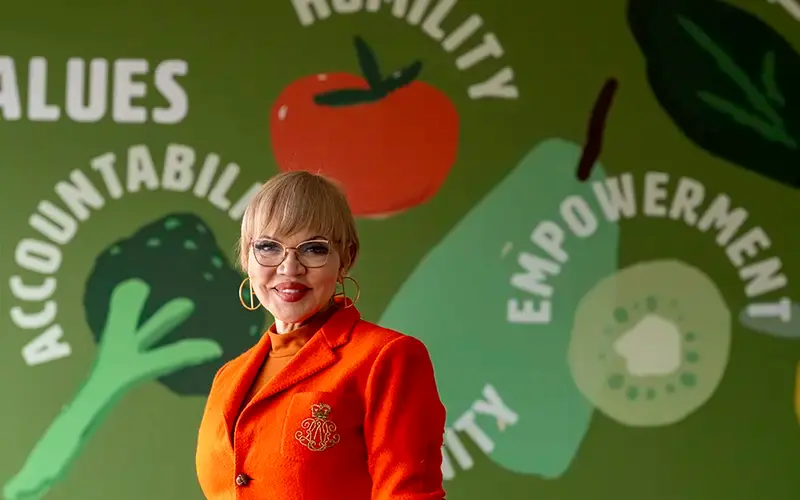
Feeding America, a national network of more than 200 food banks and 60,000 charitable and faith-based partners, rescues, stores, and distributes food to more than 49 million people facing food insecurity each year. It also conducts research on food insecurity and addresses root causes of hunger.
Over the last six years, Babineaux-Fontenot has grown the charitable organization—now the largest in the U.S., according to Forbes—and led the team through a number of challenges, including navigating a global pandemic and the ensuing increase in food insecurity. For her work, she is being honored with the 2024 Laetare Medal, considered the most prestigious honor given to an American Catholic.
Established at the University of Notre Dame in 1883, the Laetare Medal was conceived as an American counterpart of the Golden Rose, a papal honor that antedates the 11th century. Past Laetare recipients include President John F. Kennedy, Catholic Worker founder Dorothy Day, novelist Walker Percy, Vice President Joe Biden and Speaker of the House John Boehner.
Hunger is a cause that is near to Babineaux-Fontenot’s heart.
As a child, her mother never encouraged her to finish her food by saying there were hungry children in a far-off country. Her family was well aware that there were hungry children in their own hometown.
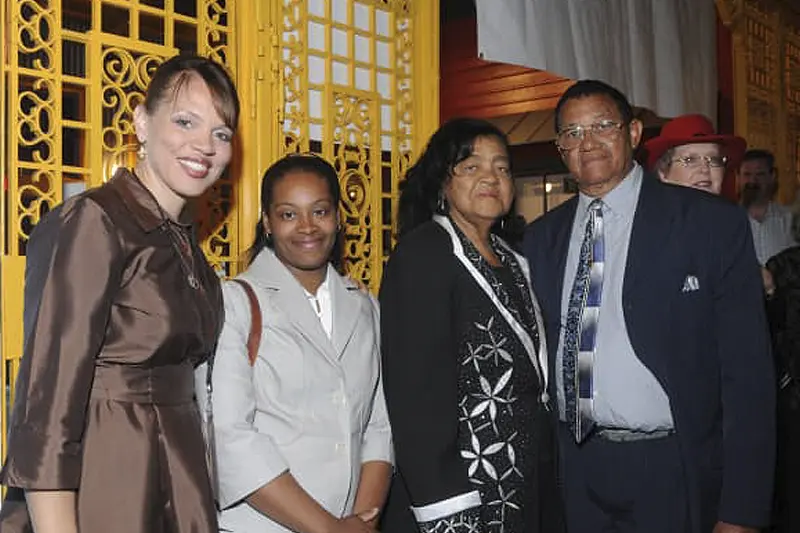
Babineaux-Fontenot grew up in the small town of Opelousas, Louisiana, as one of 108 siblings. Through a combination of birth, adoption, and fostering, her parents built a large and loving family and worked tirelessly to help children in need—many of whom had faced neglect, abuse, and food insecurity before joining their home.
Her father and mother, Warren and Mary Alice Babineaux, were eventually inducted into the National Council for Adoption’s Adoption Hall of Fame.
“My parents dedicated their lives to the service of children,” she said. “I think of how deeply rooted our family experience was in their faith, how John chapter 13 rang through their works, ‘that they would be known by their love.’ And I’ve come to realize it informs everything—all that I aspire to be in the world.”
Her parents and grandparents also worked to ensure that the Catholic faith was a fundamental part of her and her siblings’ lives. Today, she says her religious identity is as much a part of her as breathing.
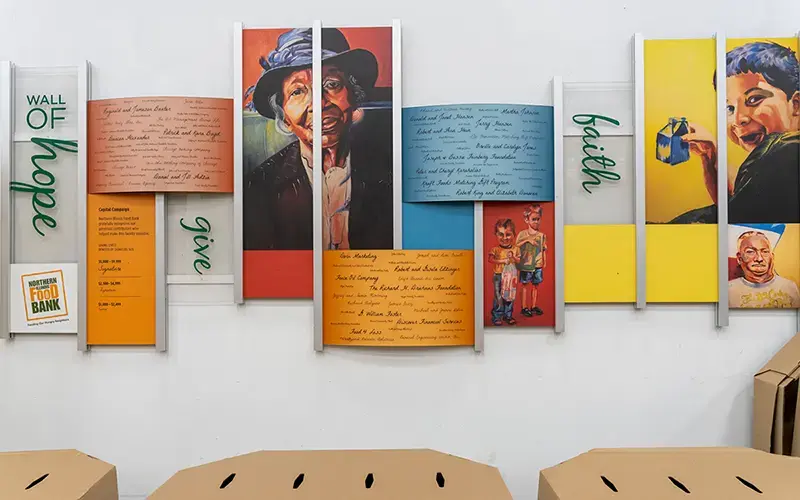
“I sometimes shy away from being called Christian, not because it’s not laudable but because it is so laudable. I think of it in a denotative way as being ‘like Christ’ and I know that I fall short,” Babineaux-Fontenot said. “But then I wake up the next day, dust myself off, and try again. I witnessed my parents and my grandparents imperfectly practice their religion, but try so hard to do it well. And they did it quite well, I think. I’m so grateful for their example.”
Babineaux-Fontenot earned a bachelor’s degree from the University of Louisiana at Lafayette and went on to complete a Juris Doctor from Southern University law Center in Baton Rouge, Louisiana, and a Master of Laws in taxation from Southern Methodist University in Dallas.
She was not only the first in her family to attend college and law school, but in the first generation to graduate high school. Those “firsts” continued when she began her career, she said.
“In many of the roles I’ve been in, I was also the first person of color or the first woman,” she said. “But inside those opportunities are challenges where people don’t know what to expect of you. They use whatever lens they already have to define their expectations of you. And sometimes it’s more than you’re able to provide, sometimes it’s less than you’re capable of. But seldom is it you. Struggling to find myself inside of those roles has been among the biggest challenges I’ve had.”
Her parents continued to be an inspiration to her, even as she began her professional career. Babineaux-Fontenot recalls a pivotal moment with her mother shortly after being appointed by the governor of Louisiana to be the assistant secretary in the state’s Office of Legal Affairs.
In the office, Babineaux-Fontenot overheard a co-worker casually remark that she “treated everyone the same.” She proudly shared the comment with her mother, but did not receive the reaction she expected.
“My mother said, ‘That would be great, Claire—if they were the same,’” Babineaux-Fontenot said. “And I realized I was getting it wrong. People are built uniquely, and my mother treated us uniquely. She didn’t expect my siblings with learning challenges to do the same things as a sibling without those challenges. She just wanted each of us to flower into the best versions of ourselves, and I’ve tried to adopt that.”
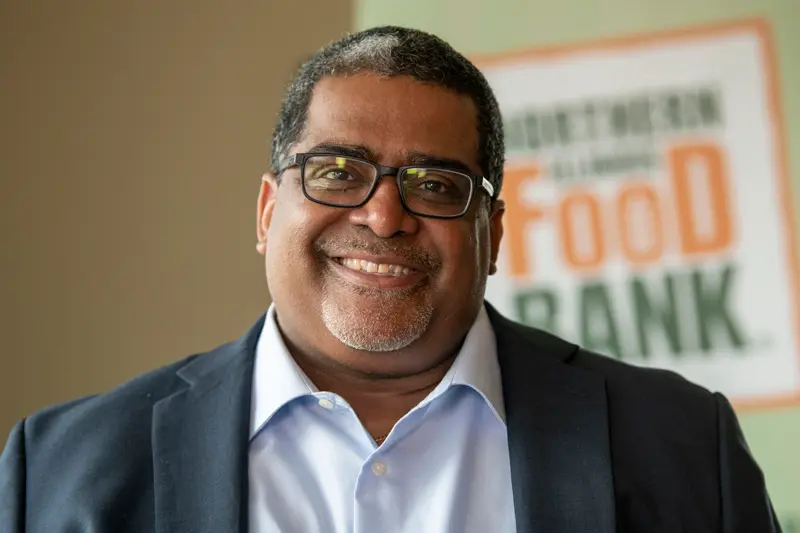
That ability to appreciate each person individually is now one of her defining characteristics as a leader, said Paul Henrys, chief financial officer of Feeding America.
“The day I met Claire, I remember watching her interact with our staff. She was taking her time to meet and talk with everyone, and it really made each person feel seen and valued,” he said. “When you get a chance to spend time with her, you are fully aware of the importance of faith to her and how it centers who she is and how she acts. And you begin to realize that it’s not only a guide to her, but it becomes a light to us as well.”
Babineaux-Fontenot took the helm at Feeding America at a crucial time for the organization, said Julie Yurko, president and CEO of the Northern Illinois Food Bank.
“When she came to us, we were in crisis. We had had a lot of trust withdrawals from our network. Things had not gone well between food banks and with the national office. And she said, ‘Let’s focus on being better together, and let’s rebuild that trust,’” Yurko said. “She did that by having lots of conversations among all of us. And then she coined the phrase ‘in service of the network.’ She will say, ‘I work in service of the network.’ That’s a very servant-like approach and attitude to making sure that this vast, diverse, important community has trust with her and her team.”
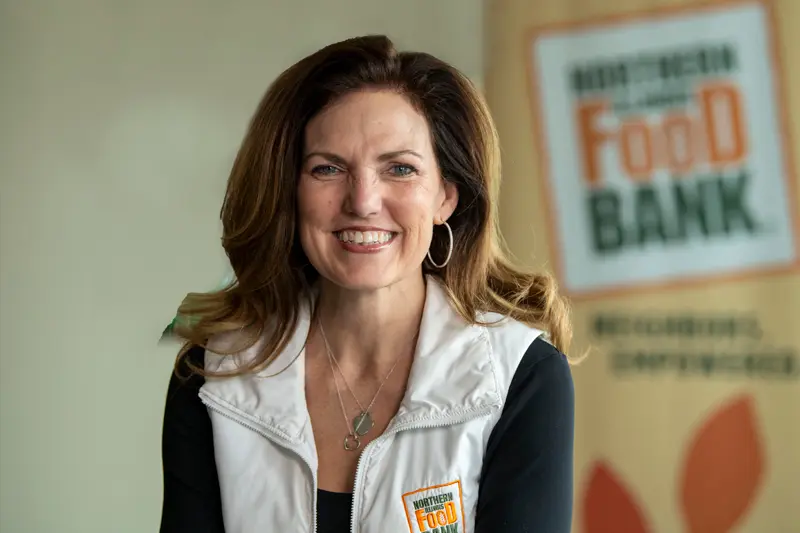
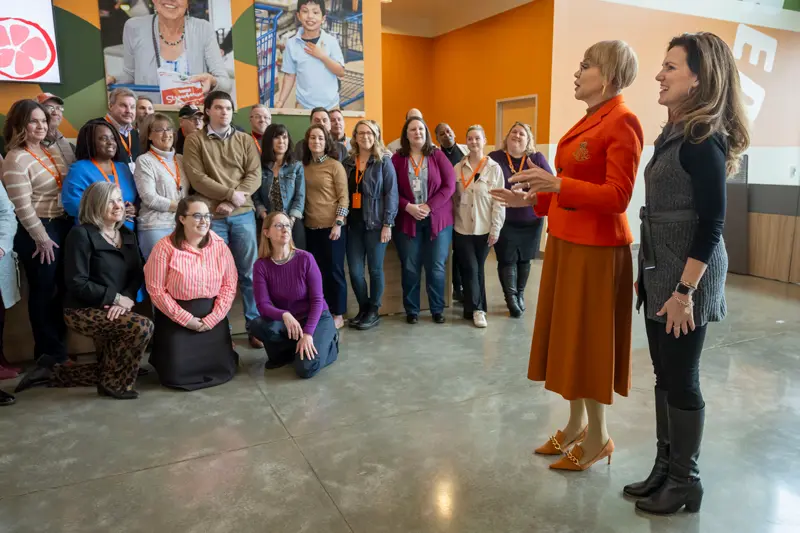
Babineaux-Fontenot has also helped shine a light on underserved communities and how to best reach them, Yurko said. While the hunger crisis touches every county and parish in America, people of color and those in rural communities are disproportionately impacted.
“Out of the gate, Claire said that we’re going to look at equity, diversity, and inclusion,” Yurko said. “It’s important for us to understand which populations are underrepresented or left behind and how we can help them. Her work in that area has made a real impact that has changed the way we approach that.”
Two years into Babineaux-Fontenot’s tenure, the COVID-19 pandemic hit. And, almost overnight, the organization saw a tremendous increase in the number of families who needed assistance. However, that turbulent time came with a silver lining, Babineaux-Fontenot said, as it also pushed the hunger crisis in the U.S. into the spotlight.
“The outpouring of support during the pandemic was like nothing we’ve ever seen before,” she said. “The need was certainly great, but our communities all around the country stepped up to help.”
During that time, Yurko said, Babineaux-Fontenot not only made sure that they could address the immediate needs that arose from the pandemic—from safety to increased demand to logistics—but also helped them strategize about how they could build on that increased awareness to further their long-term goal of solving hunger.
“Claire worked tirelessly,” Yurko said. “She led us. And I was so impressed with her ability, her thoughtfulness, and her courage, along with the hours that she gave to help Feeding America and our network to serve these communities.”
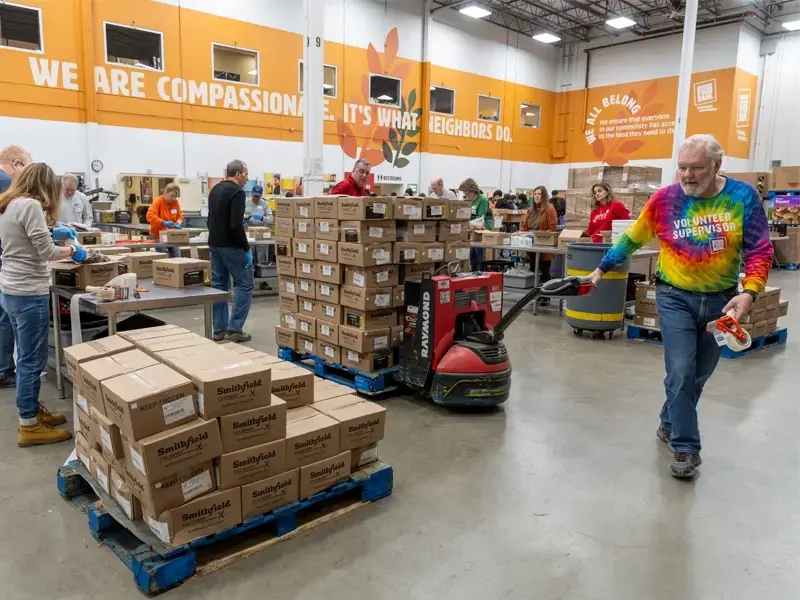
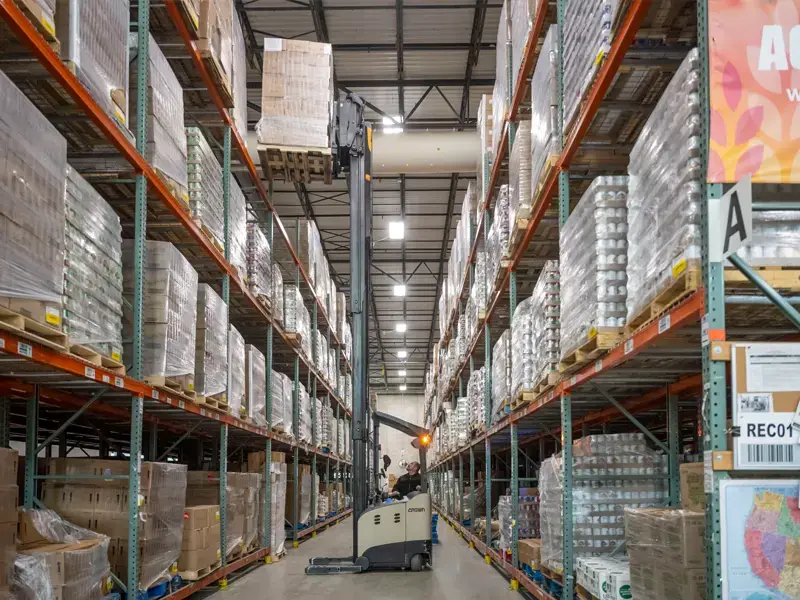
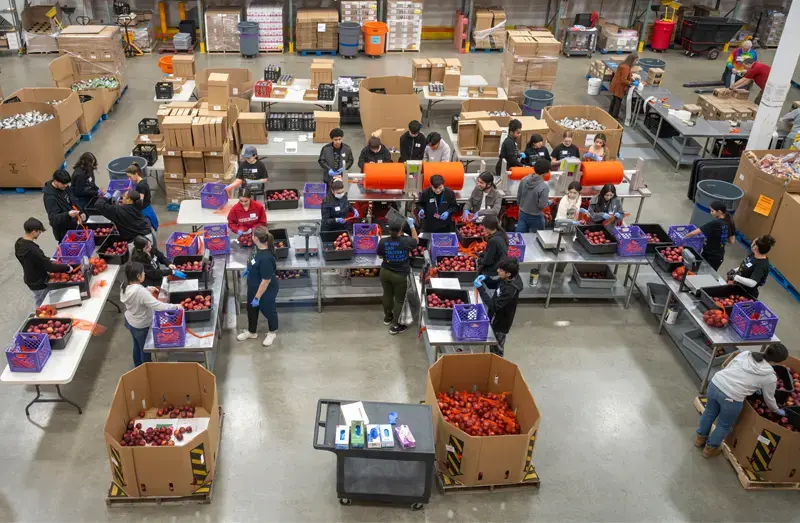
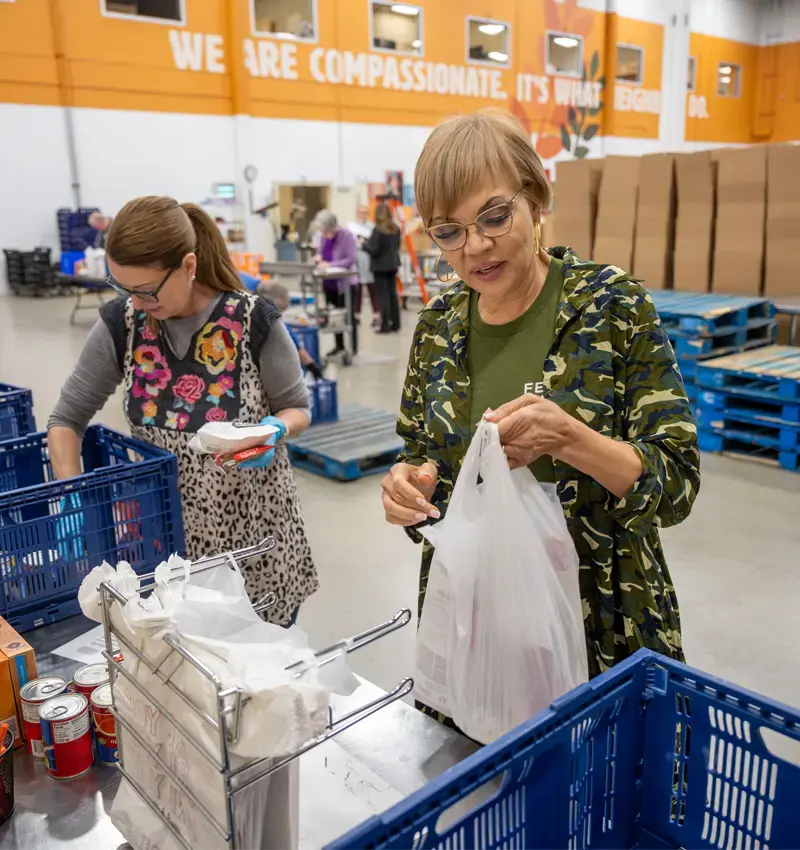
Under Babineaux-Fontenot’s direction, Feeding America became the nation’s largest charitable organization in 2022, according to Forbes. And the network distributed 5.3 billion meals in 2023.
But there is still much work to do, Babineaux-Fontenot says.
As the world returned to its normal routines after the pandemic, food donations decreased, special government relief programs expired, and food insecurity has climbed to its highest rate since the financial downturn of 2008.
“Over 10 million children are food insecure here, in the richest country in the history of civilization,” she said. “That means we need to continue to get the word out. We should help people to understand that the game isn’t over. Notre Dame knows a thing or two about football, right? You don’t leave the field before the game is over. The game’s not over with hunger.”
Babineaux-Fontenot, who was named one of the world’s 100 most influential people by Time magazine in 2020, is ready to continue the fight. Success to her means nothing short of ending the hunger crisis.
“Success for Feeding America is having a place at the table in thriving communities where people are creating solutions for themselves,” she said. “And an America where no one—no one—has to wonder where their next meal is going to come from, or the one after that or the one after that. Where children get the nutrients they need to thrive. Where moms and dads don’t have to eat less so their kids have full bellies. Where grandmas and grandpas can invite family to their houses for holidays because they have enough to share.
“That’s my vision, and it’s all possible. These are not pipe dreams.”
To achieve that vision, she and her team at Feeding America are seeking new ways to address food insecurity disparities and championing new legislation in Congress, and they recently announced a partnership with the Department of Health and Human Services to explore the link between food insecurity and health outcomes.
Along the way, Babineaux-Fontenot has found a sense of joy and purpose she had never known in the workplace.
“One of my greatest privileges is that I get to see people be hopeful, and I get to have hope as a reflection of their remarkable generosity,” she said. “I get to go into these communities and stand shoulder to shoulder with people making sure their neighbors have the food they need.”
She is grateful every day that she heeded God’s call in 2015.
“If my life is a testament to anything, it would be to listen. Be still. There’s a path and your steps are ordered. Your responsibility is to figure out the path you’re supposed to be on. It will come to you and when it comes, you will know.”
